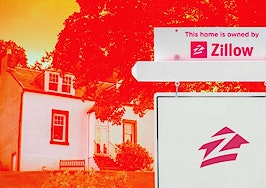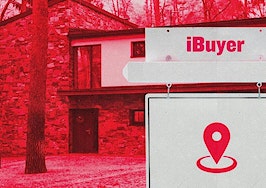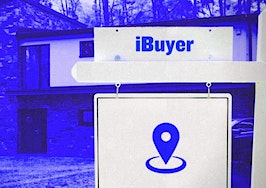This story was republished with permission from the author.
The coverage of Zillow’s latest results is fantastically uninspiring. Lots of big numbers, devoid of context. But when the dots are connected they reveal a rich story about the business’s evolution to Zillow 2.0.
Perhaps most impressively, Zillow just had its third consecutive profitable quarter. For a business that’s basically operated at a net loss since inception, this is a noteworthy achievement.

The move toward profitability is driven by Zillow’s premier agent program — the engine room of the company — which is firing on all cylinders and back to impressive growth (fueled by record-breaking demand during the pandemic).

On an absolute revenue basis, Zillow’s premier agent program has set a succession of all-time record quarters for the past 12 months. Zillow is generating more money from its premier agent program than ever before, which is especially noteworthy after the program ground to a halt in early 2019.

Zillow’s iBuyer business is back to growth mode, purchasing and selling houses at pre-pandemic levels and still operating at a loss. But the net loss per home has dropped to its lowest level yet, a reflection of improving economics at scale.

Last week, I looked at the ecosystem disruption in mortgage and how global leaders Zillow and REA Group have spent hundreds of millions of dollars expanding into mortgage through the acquisition of broker-heavy, 20-year-old traditional businesses — and not technology companies.
Zillow’s mortgage business continues to grow, but it’s being driven by refinancing (90 percent) — not new purchase (10 percent) — business. To fully believe the one-stop-shop Zillow 2.0 narrative, new purchase volumes should grow in the future.

But while overall mortgage revenues increased, the business remains unprofitable. This is another sign that mortgage is hard, difficult to scale profitably, and tough to “reinvent” with technology. Like the Zillow Offers business, Zillow Mortgage appears to be another high revenue, low margin operation.

The evidence reveals a business — in my humble opinion — that is still in the early innings of reinventing real estate. Zillow is clearly benefiting from the current red-hot real estate market, with its Premier Agent program leading the charge and funding the evolution to Zillow 2.0.
But the promise of new adjacent services is still an aspirational goal. The various pieces are being built, but they still need to be assembled in a credible way that reinvents the transaction at a meaningful scale. Momentum is on its side, and Zillow’s evolution continues.
Mike DelPrete is a strategic adviser and global expert in real estate tech, including Zavvie, an iBuyer offer aggregator. Connect with him on LinkedIn.













